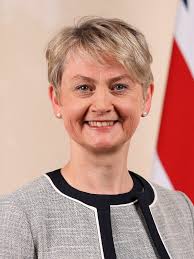
Introduction
Yvette Cooper, a prominent figure in UK politics, continues to exert significant influence within the Labour Party and the broader political landscape. As the Member of Parliament for Normanton, Pontefract and Castleford since 1997, Cooper has held various key positions, including her current role as Shadow Home Secretary. Her work focuses on pressing social issues such as immigration, housing, and women’s rights, making her an essential player in contemporary political discussions.
Political Career and Achievements
Yvette Cooper’s political journey has been marked by her noteworthy contributions in various capacities. She served as the Secretary of State for Work and Pensions during Gordon Brown’s premiership, where she implemented policies aimed at tackling poverty and improving welfare systems. Most recently, Cooper took on the role of Shadow Home Secretary in 2020, where she has been vocal about the need for comprehensive reforms in policing and immigration amid ongoing debates in Parliament.
In addition to her cabinet roles, Cooper has shown her commitment to social justice and equality by advocating for the rights of women and minority groups. Her recent discussions in Parliament have centred around combating domestic violence and championing legislation that protects vulnerable populations.
Recent Developments
In the wake of the Cost-of-Living Crisis, Yvette Cooper has been particularly active, calling for government measures to avert an impending humanitarian crisis. As energy prices soar and inflation rises, she has urged the government to ensure that support mechanisms are in place for those most affected. Her strong stance has resonated with constituents and has been critical in shaping Labour’s response to the current economic climate.
Cooper’s advocacy extends beyond economic issues; she has also expressed concerns regarding the rising levels of hate crime and injustice towards refugees and immigrants. Through her work, she aims to foster a more inclusive society in the UK and is a key figure in Labour’s mission to provide a more equitable future for all.
Conclusion
Yvette Cooper’s dedication to public service and her steadfast commitment to social justice makes her an influential voice in UK politics. As she continues to challenge government policies and advocate for vulnerable groups, her efforts will likely shape Labour’s agenda and the national conversation in the months to come. With the next general election on the horizon, Cooper’s roles and perspectives will undoubtedly play a significant part in Labour’s strategy moving forward, as they seek to address the pressing issues facing the nation.
You may also like

The Role of Metro Systems in Modern Cities

Costa Coffee’s Commitment to Sustainability in 2023
